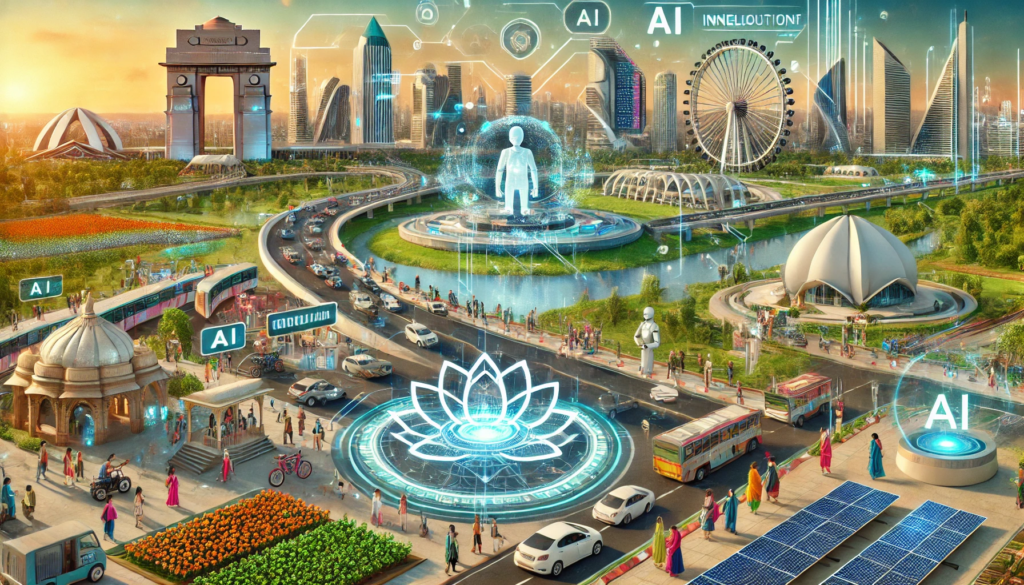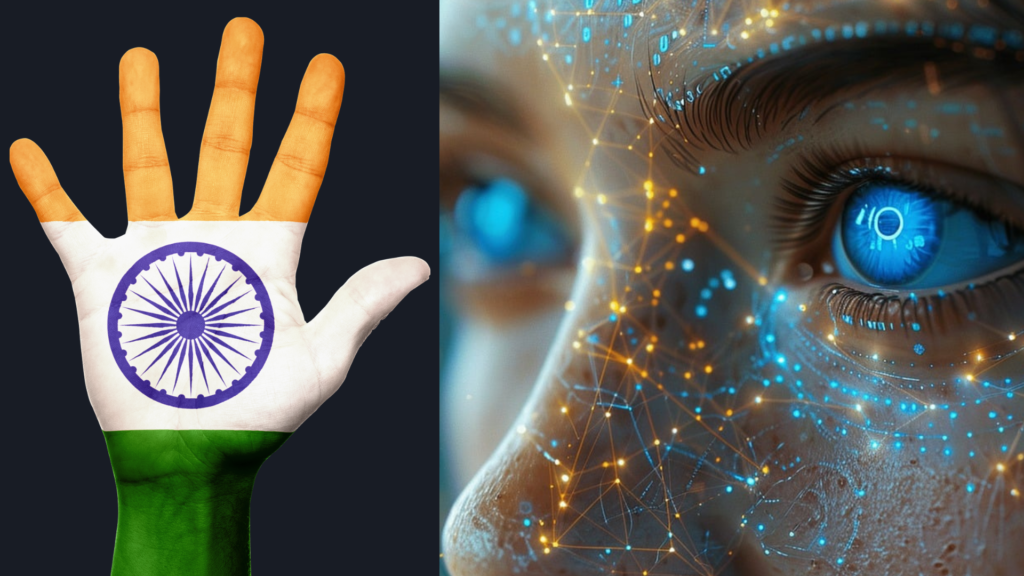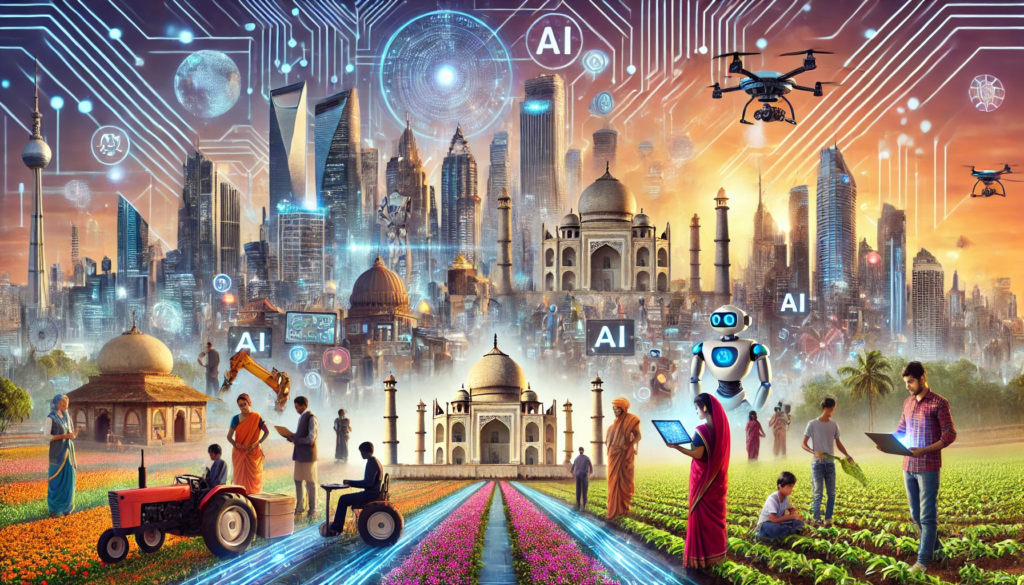Artificial Intelligence (AI) has revolutionized the world, transforming industries and reshaping the way we live and work. From healthcare to education, AI’s influence is widespread, and India is emerging as a key player in this technological revolution. One of the most exciting developments in AI is ChatGPT, an advanced language model designed by OpenAI. ChatGPT has the potential to redefine various sectors, from customer service to content creation, and even the way we interact with technology in our daily lives.
In this article, we’ll explore how AI and ChatGPT are shaping India’s future and how this technology is transforming industries, creating new opportunities, and influencing the daily lives of millions.

The Rise of Artificial Intelligence in India
India, with its large pool of tech talent, has quickly embraced AI across multiple sectors. The government has also taken initiatives, like the National AI Strategy (NITI Aayog’s “AI for All”), to integrate AI into various public and private sectors, aiming to position India as a global leader in AI by 2030. The widespread adoption of AI can be attributed to its numerous applications that improve efficiency, reduce human error, and drive innovation.
From smart cities to AI-powered healthcare solutions, AI is becoming a cornerstone of India’s future.

What is ChatGPT and How Does it Work?
ChatGPT, developed by OpenAI, is a language model that uses deep learning to generate human-like text based on the input it receives. It can understand and respond in natural language, making it a powerful tool for automating conversations, creating content, and solving customer queries. ChatGPT is a prime example of how AI can mimic human interaction, offering a glimpse into the future of communication and automation.
Key Features of ChatGPT:
- Natural Language Understanding: ChatGPT can interpret complex sentences and respond in a way that feels human.
- Customizable Interactions: Businesses can tailor ChatGPT to suit their specific needs, such as customer support or personalized marketing.
- 24/7 Availability: Since it’s powered by AI, ChatGPT can operate around the clock, providing immediate assistance.

AI and ChatGPT in Various Sectors
1. Customer Service
AI-powered chatbots, like those driven by ChatGPT, are transforming customer service in India. From e-commerce to banking, businesses are leveraging AI to provide instant support to customers. With ChatGPT, companies can handle multiple queries simultaneously, reduce wait times, and enhance user experience. This not only improves customer satisfaction but also reduces operational costs.
For example, many Indian e-commerce platforms are now using AI-driven chatbots to help customers track orders, resolve issues, and make product recommendations in real-time.
2. Education
In India, AI is transforming the education sector by providing personalized learning experiences. AI-powered tools, like ChatGPT, can assist students with instant feedback, answer questions, and even help with exam preparation. Platforms that integrate AI are making learning more accessible, especially in remote areas where educational resources may be limited.
AI is also enabling adaptive learning platforms, where the content adjusts according to the student’s pace and understanding. This is particularly helpful in a country like India, where there is a huge diversity in learning levels.
3. Healthcare
AI and ChatGPT have the potential to revolutionize healthcare in India by providing virtual healthcare assistants. These assistants can help patients schedule appointments, offer basic medical advice, and remind them to take medications. In rural India, where access to healthcare is often limited, AI can bridge the gap by offering virtual consultations and remote monitoring.
Additionally, AI algorithms are now used to assist doctors in diagnosing diseases more accurately by analyzing large datasets of medical records.
4. Content Creation and Marketing
AI tools like ChatGPT are making content creation faster and more efficient. From blog writing to social media posts, AI can generate content based on keywords, trends, and specific topics. This is helping businesses in India improve their digital marketing efforts and engage with their audiences more effectively.
For instance, many brands now use AI to create personalized marketing campaigns based on user behavior and preferences, allowing them to target the right audience at the right time.

The Role of AI in India’s Economic Growth
AI is expected to contribute significantly to India’s GDP in the coming years. A report by NASSCOM estimates that AI could add up to $500 billion to India’s economy by 2025. The government’s focus on fostering AI startups and investing in AI infrastructure is a key driver of this growth.
Job Creation through AI:
While there are concerns about AI replacing jobs, it’s also creating new opportunities. In India, sectors like IT, finance, and manufacturing are witnessing a surge in demand for AI professionals. With the rise of AI-powered automation, there’s a growing need for skilled workers to develop, manage, and maintain these systems.
AI Startups:
India is home to a growing number of AI startups that are innovating across industries. From Bengaluru to Hyderabad, AI hubs are emerging as centers of innovation where startups are using AI to solve real-world problems, such as optimizing agriculture, improving logistics, and enhancing public safety.
Challenges of AI Adoption in India
Despite the numerous advantages, there are challenges in adopting AI on a large scale in India.
- Data Privacy Concerns: AI relies heavily on data, and in a country like India, where digital literacy is still growing, ensuring data privacy is a major concern. Without proper regulations, there’s a risk of misuse of personal data.
- Lack of AI Literacy: Although AI is growing rapidly, there is still a significant portion of the population that is unaware of its potential. For AI to fully thrive in India, there is a need for education and awareness programs.
- Infrastructure Limitations: While urban areas in India are quickly adopting AI technologies, rural regions still lack the infrastructure required for large-scale AI implementation. High-speed internet, necessary for many AI applications, is not universally available.

The Future of AI in India
The future of AI in India looks promising. As AI becomes more integrated into daily life, its impact will only grow stronger. The government’s continued investment in AI initiatives, along with the increasing involvement of the private sector, is likely to accelerate AI’s growth across industries.
ChatGPT and the Evolution of Communication:
ChatGPT is just the beginning of what conversational AI can achieve. In the near future, we can expect AI to become even more integrated into personal and professional communications. Whether it’s providing customer support, assisting in online learning, or simply acting as a virtual assistant, AI will continue to reshape the way we communicate.
Conclusion
Artificial Intelligence, and especially models like ChatGPT, are transforming India’s future in unprecedented ways. From enhancing customer service to revolutionizing healthcare and education, AI is proving to be a game-changer. As India continues to embrace AI, the technology will not only boost economic growth but also improve the quality of life for millions.
The journey of AI in India is just beginning, and with the right investments in infrastructure, education, and regulation, the country is poised to become a global leader in artificial intelligence.
For more updates, stay connected with VOXX INDIA.











Was hunting for a promo code and found one that worked on indibetpromocode. Saved a few rupees, so worth the search. Happy to try indibet out!
Anyone here know anything about 8clb89? I’m always on the lookout for good sports betting sites, so if ya have any insights, please share! Check it out here: 8clb89, sharing is caring!